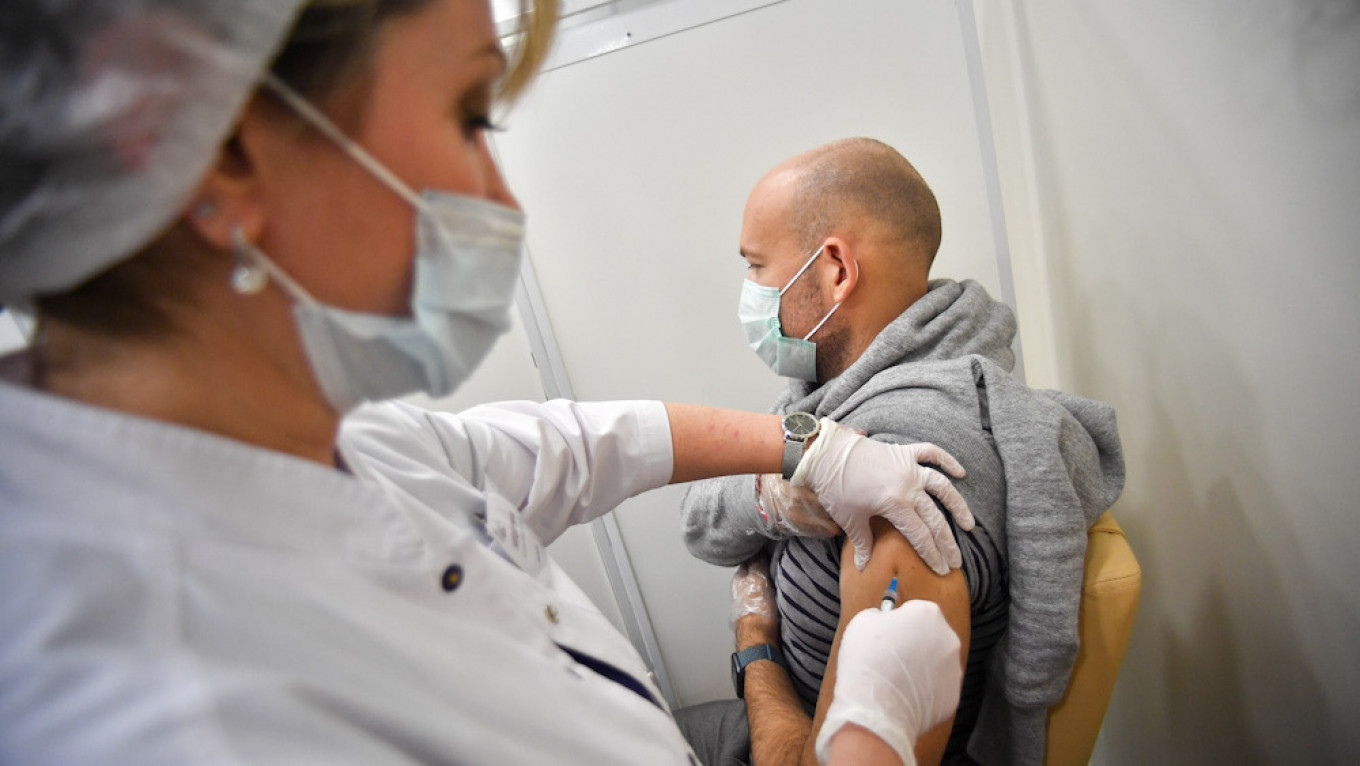
The developer of Russia’s Sputnik V coronavirus vaccine has confirmed the jab is less effective against the South African variant of the virus, but claimed that the Russian-made vaccine still offers better protection against virus mutations than its rivals.
In an interview with state-run news agency Interfax, Alexander Gintsburg, head of the Gamaleya Institute which developed the jab, accepted the results of a U.S.-Argentinian study showing Sputnik V produced a “markedly reduced” antibody response to the South African variant of the virus compared with other strains.
The study showed that two thirds of the 12 blood samples analyzed did not produce a sufficient antibody response to offer protection against the South African variant, while effectiveness against the British variant was similar to that observed in Russia’s peer-reviewed clinical trials into Sputnik V’s overall effectiveness.
“The study showed that of all currently used vaccines in the world, Sputnik V is the most active and best neutralizing against the British strain,” Gintsburg told Interfax.
“As for the South African strain, as with all other vaccines, the effectiveness of Sputnik V decreases.” He added, however, that the reduction in potency was less pronounced for Sputnik V than other jabs, making the Russian-made vaccine “much more preferable.”
Earlier this week Russia had heavily criticized the same study, which was based on exposing blood samples taken from 12 Argentinians who had been vaccinated with Sputnik V to different mutations of the virus and measuring the antibody response.
A source close to the Gamaleya Institute had told The Moscow Times both the methodology and conclusions of the study were “weak.” But speaking to Interfax, Gintsburg said the study was based on “a very decent selection of blood samples … tested in a number of laboratories.” He also highlighted the independence of the study, saying Russian researchers “had nothing to do with and could not in any way influence the results.”
The research found that the immune response produced against variant B1.351 — the strain first identified in South Africa — was more than six times weaker than that against other coronavirus strains. Sputnik V was also found to be less effective in combating all variants with the E484K mutation — a specific mutation, nicknamed “Eek” by some scientists, which is present in the South African and Brazilian variants of the virus, and has recently been discovered in the U.S. and Japan.
The Gamaleya Institute has said it is working on its own research into Sputnik V’s effectiveness against virus mutations, which shows the jab is more effective than other vaccines currently in use around the world. Researchers declined to share further data or information on that study with The Moscow Times.
Gintsburg said research has begun on developing a “cluster” version of Sputnik V which can protect “against four or five variants” of the virus, which could reduce the need to receive multiple vaccinations to combat the different variants. Research is currently in the pre-clinical trial stage, he said.
He also said it is “most likely” that a mass vaccination campaign will be needed among animals, in order to reduce transmission and cut-off the risk of the virus mutating in animals and then transferring back to humans in the future.